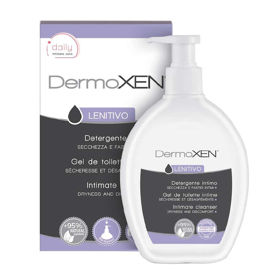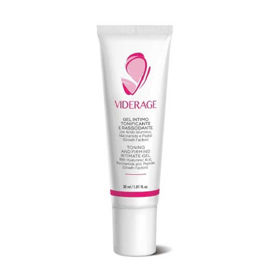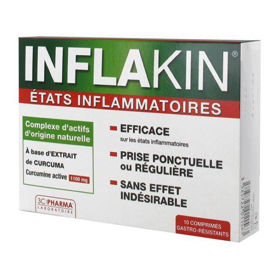Vprašanje stranke:
Kaj je vnetje nožnice? Vprašanje anonimne stranke
Odgovor farmacevta:
Vnetje nožnice, poznano tudi kot vaginitis, je pogosta ginekološka težava, pri kateri pride do vnetja tkiva v nožnici. To stanje lahko povzročijo različni dejavniki, vključno z okužbami, draženjem ali alergijskimi reakcijami. Najpogostejši vzroki vnetja nožnice so bakterijske, glivične ali virusne okužbe, kot so bakterijska vaginoza, drozg ali genitalni herpes. Poleg tega lahko uporaba dražečih kemikalij, kot so parfumirani higienski izdelki ali pralni praški, ter specifične snovi v proizvodih povzročijo tudi vnetje nožnice.
Ali je vnetje nožnice nevarno?
Vnetje nožnice samo po sebi običajno ni nevarno, vendar pa lahko povzroči nelagodje in vpliva na kakovost življenja ženske. Večina primerov vnetja nožnice je blaga in se lahko zdravi z ustreznim zdravljenjem, vključno z zdravili ali spremembami v življenjskem slogu. Vendar pa lahko v nekaterih primerih vnetje nožnice povzroči resnejše zaplete, še posebej, če ni pravilno diagnosticirano ali zdravljeno. Nekateri zapleti vnetja nožnice vključujejo ponavljajoče se okužbe, neplodnost, komplikacije med nosečnostjo in širjenje okužbe na sosednje organe. Nezdravljeno ali neustrezno zdravljeno vnetje lahko povzroči resne posledice, zato je zgodnje zdravljenje ključnega pomena.
Kako se zdravi vnetje nožnice?
Zdravljenje vnetja nožnice je odvisno od vzroka vnetja in lahko vključuje uporabo zdravil, sprememb življenjskega sloga ali druge terapevtske pristope. Splošne metode zdravljenja vnetja nožnice vključujejo:
- Antibiotike: če je vzrok vnetja bakterijska okužba, lahko zdravnik predpiše antibiotike za odpravo bakterijskega vzroka.
- Protiglivična zdravila: za zdravljenje glivičnih okužb se običajno uporabljajo protiglivična zdravila, kot so klotrimazol, mikonazol ali flukonazol.
- Protivirusna zdravila: v primeru virusnih okužb, kot je genitalni herpes, se lahko uporabijo protivirusna zdravila za zmanjšanje simptomov in preprečevanje širjenja okužbe.
- Spremembe v življenjskem slogu: izogibanje dejavnikom, ki lahko dražijo nožnico, lahko pomaga pri zdravljenju vnetja. To vključuje izogibanje uporabi parfumiranih higienskih izdelkov, prilagajanje spolnih praks ali spremembe v prehrani.
- Intimna higiena: redno umivanje zunanjih spolnih organov z blagim milom in vodo ter izogibanje uporabi dražečih kemikalij lahko pomaga pri preprečevanju in zdravljenju vnetja nožnice.
- Naravne metode: nekatere naravne metode, kot je uporaba jogurta z živimi kulturami ali čaj iz kamilice, lahko pomagajo pri blaženju simptomov vnetja nožnice. Vendar je pri izvajanju tovrstnih metod vedno priporočljivo, da se posvetujete z zdravnikom.
- Zdravljenje osnovnega stanja: če je vnetje nožnice posledica drugega osnovnega stanja, kot je denimo diabetes ali oslabljen imunski sistem, je pomembno zdraviti to osnovno stanje.
Kako dolgo traja nožnično vnetje?
Trajanje nožničnega vnetja je odvisno predvsem od vzroka vnetja, resnosti simptomov in ustreznosti zdravljenja. V mnogih primerih se simptomi lahko izboljšajo v nekaj dneh po začetku zdravljenja, vendar je pomembno nadaljevati z zdravljenjem v skladu s priporočili zdravnika ali ginekologa, tudi če se simptomi zmanjšajo ali celo izginejo. Pri nekaterih okužbah, kot so bakterijska vaginoza ali glivična okužba, se lahko simptomi vnetja nožnice ponovijo in zahtevajo nadaljnje zdravljenje. Zato je pomembno slediti navodilom zdravnika in nadaljevati z zdravljenjem v celoti, tudi če se simptomi izboljšajo. V nekaterih primerih lahko vnetje nožnice postane kronično, kar pomeni, da simptomi trajajo dlje časa ali se redno pojavljajo.
Ali spolni odnos lahko povzroči vnetje nožnice?
Spolni odnos lahko povzroči vnetje nožnice, še posebej, če niso upoštevane ustrezne higienske prakse ali če je prisotno draženje ali alergijska reakcija. Če imate po spolnem odnosu simptome vnetja nožnice, kot so srbenje, pekoč občutek, povečan izcedek ali nelagodje, je pomembno, da se posvetujete z zdravnikom ali ginekologom za ustrezno diagnozo in zdravljenje.
Nekateri možni načini, kako lahko spolni odnos povzroča vnetj nožnice, vključujejo:
- Reakcija na spermo: nekatere ženske lahko razvijejo alergijsko reakcijo na sestavine sperme, kar lahko povzroči draženje in vnetje nožnice.
- Draženje zaradi trenja: intenzivni spolni odnosi ali pomanjkanje ustrezne lubrikacije lahko povzročijo draženje nožnice in povzročijo vnetje.
- Prepogost spolni odnos: prekomerni spolni odnosi lahko povzročijo neravnovesje bakterij v nožnici in povečajo tveganje za bakterijsko vaginozo ali druge okužbe.
- Uporaba dražečih snovi: eporaba dražečih snovi, kot so lubrikanti, spermicidi ali lateksni kondomi, lahko povzroči draženje ali alergijske reakcije, ki lahko privedejo do vnetja nožnice.
- Prenos okužb: spolni odnos lahko prenese bakterijske, glivične ali virusne okužbe na nožnico, kar lahko povzroči vnetje.
Preprečevanje draženja in uporaba kondomov lahko pomagata zmanjšati tveganje za vnetje nožnice med spolnimi odnosi. Poleg naštetega se je pomembno izogibati spolnim odnosom, če imate simptome vnetja nožnice ali če je vaš partner okužen.
Kaj povzroča vnetje vagine?
Vnetje vagine lahko povzročijo različni dejavniki, vključno z okužbami, draženjem ali alergijskimi reakcijami. Najpogostejši vzroki vnetja vagine vključujejo bakterijske, glivične ali virusne okužbe, kot so bakterijska vaginoza, glivična okužba, okužba s klamidijo, gonoreja, genitalni herpes ali humani papiloma virus (HPV). Poleg tega lahko draženje zaradi kemikalij, kot so parfumirani higienski izdelki, mila ali pralni praški, ter alergijske reakcije na določene snovi prav tako povzročijo vnetje vagine. Hormonske spremembe, kot so tiste, ki se pojavijo med nosečnostjo, menopavzo ali ob uporabi hormonskih kontracepcijskih sredstev, lahko prav tako prispevajo k razvoju vnetja vagine.
Zanimivo branje: Vnetje maternice znaki
Zanimivo branje: Glivično vnetje nožnice







 Facebook
Facebook
 Instagram
Instagram
 info@moja-lekarna.com
info@moja-lekarna.com

